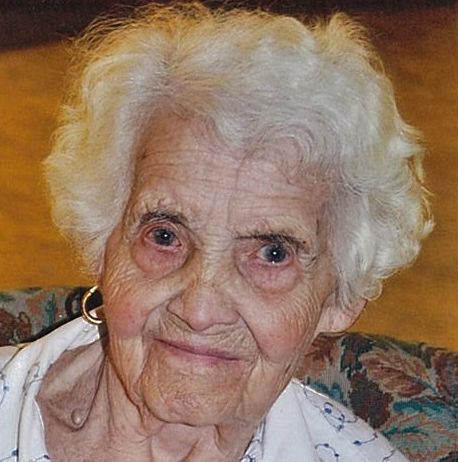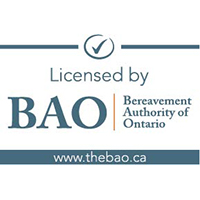Obituary
January 25, 1922 – February 4, 2013 Nadia Menko-Mychajlowska was born on January 25, 1922, to Tatiana and Semen Menko in the small city of Ichnya, Chernihivska oblast. Ukraine. Nadia was christened Anastasia Menko, but never liked her given name and changed it to Nadia in Germany, when she found herself stateless and without documentation in 1943. She was the fourth child born to Tatiana Menko, and the first child to live. She was followed by two sisters, Nadia (1926), Vera (1928) and brother Ivan (1930). Life was very difficult for Nadia as her family was very poor. At the age of eight, Nadia was sent to live with a rich aunt, whom she found cold and frightening, causing her to eventually run away and return home. One wonders what impressions this experience had on her life – her sense of worth after being sent away, her relationship with her mother, her impression of women in general and their lot in life in severe conditions. Nadia was 10 years old when the Holodomor, the Famine-Genocide was forced on the Ukrainian population. She witnessed how people died of starvation, were brutalized and killed. She also saw how the communists took away their food and used the grain for alcohol in the local distillery, while the people starved to death around her. The family survived on potato peelings, cow’s milk, the chaff from the distilled grain. Over the years, she tried to push the horrors of those days into the back of her mind, and only later, hesitantly recounted the atrocities she witnessed. In 2009 she finally consented to recount her story to the UCRDC ( Documentation Centre) to be left for future generations. In the last months of her life, these painful memories returned to haunt her and she retold her stories over and over again. Somehow the Menko family survived the Famine-Genocide, but not without its consequences. Nadia was sick off and on and understood the pain of hunger. She swore never to be hungry again. Thus, once in Canada, her kitchen table was always laden with lots of food and guests, young and old, were welcome and abundant. She became an accomplished cook and baker and was known for her fabulous Napoleon. Just before World war II, Nadia finished a course in nursing, but never practiced. She ran away after seeing corpses. In 1943, as a 21 year old on her way to work, she was picked up by the Germans who occupied Ukraine. She was designated for slave labour and sent to Germany. Eventually, she ended up in Erfurt where she worked at Olympia, once known as a typewriter manufacturing plant, but converted into an ammunitions factory during the war. Nadia worked in the kitchens preparing food for all the workers. There she met Ivan Mychajlowskyj who himself was brought to work at Olympia. They consoled each other in their common fate, married and had two daughters, Valentina and Lydia before immigrating to Canada in 1950. Nadia had guts! While in Germany, she shielded Ivan from firefighting duty during bombings by hiding him in the bomb shelter, covering him with a blanket and sitting on top of him with her friend. She also once saved him from dire consequences by disposing of a gun during inspection by the American military; she bartered goods they received for food and clothing, and befriended the Natsyks, who eventually became their sponsors for immigration to Canada. Nadia and Ivan settled in Montreal, Quebec, where Nadia gave birth to her third child, her beloved son, Volodymyr, the apple of her eye. It was here she worked outside the home to help feed and clothe the family, and became active in community life at St Mary the Protectress Ukrainian Orthodox Church and Prosvita. Nadia joined the Sisterhood at the church and became the president of the Sisterhood during the difficult years of building a new church in Rosemount, Montreal. She and Ivan were among the dedicated founders of the church. She coordinated and cooked meals for the building volunteers. She organized cultural activities and prepared lectures on historical and literary figures to present at commemorative events. She included her children in these endeavours by teaching them lengthy recitations to be performed on stage, even before they could read. She definitely had a theatrical bend. She read Ukrainian literature and it became her passion in later years. She also had an avid interest in Ukrainian politics after 1991, and loved to discuss the evolving situation in Ukraine with anyone who was interested. Nadia sang in choirs most of her life. We knew that all was right with the world when our mother sang. She sang in her lovely alto voice and taught us many songs from the time we could remember. From this beginning and onwards, her children were left with the gift of music appreciation and participation. Nadia sang in the church and Moloda Ukraina choirs in Montreal under the directorship of Ivan Kozachok. She continued this activity in Vancouver where she lived with Lydia and her family for three years, and later in Toronto with the St.Volodymyr Church choir under Nestor Olynyk. She was a feisty lady who knew her rights; she was a feminist when it was not yet widely accepted. She taught her daughters to stand up for themselves, and not be afraid to take up challenging activities and causes. She was the bearer of tradition in the family and a regular church-goer. In the late 1960’s and into the 70’s, Nadia’s children scattered across Canada. Lydia married Danylo and lived in Vancouver with their three sons - Andrew Christopher, and Damian. Valentina married Ihor and moved to Sudbury, then Toronto and had two children - Petryk and Ulyana. Volodomyyr married and lived in Georgetown where he had two children - Melannya and Alexander, and later moved to Cleveland and Boulder, Colorado. Nadia visited them often until the time when she and Ivan moved into the St. Demetrious Senior’s Residence in Toronto. Nadia was thrilled to be a grandmother and spent many hours with her grandchildren. She left her mark on all of them, who, although far away, took time to visit their beloved grandmother this past autumn/fall as her health was failing. Each brought with him/her, their young family including the great grandchildren: Amelia, Danylko, Nina and Victoria. She was happiest in their presence. She loved to travel and visited Ukraine twice to see family, and counted as her friends Nina Matvienko, who called her Aunt Nadia and Marichka Mykolaychuk. She also loved Hawaii and vacationed there several times with her friends - the Zahoriukos. She was able to care for herself until Feb 7, 2007, when she was driven over by a car and sustained multiple injuries that almost killed her. She spent 4 months in hospitals and rehabilitation centres, underwent numerous surgeries and other procedures. She lost her independence and relied on others for help with everyday activities. Valentina looked after her daily needs while Lydia and Volodymyr visited her on a regular basis. In 2010, she spent a year at St Peter’s and Paul’s Seniors’ home and the last year and a half at the Ukrainian Canadian Care Centre. Above all she loved her family. It was in her nature too nurture and help when needed. She leaves a legacy of service, dedication, love of music, knowledge of tradition, example of leadership, and cleanliness that is hard to beat. Doroha Mamo, we love you, pray for you and will cherish your memory to the end of our days. Vichna Tobi Pam’yat! Valentina Kuryliw and Lydia Huzyk DaughtersVisitation
February 06, 2013
6-9 pm Panakhyda 7:30 pm
Service
February 07, 2013
Ukrainian Canadian Care Centre, 60 Richview Road, Toronto
10 am
Burial / Entombment / Cremation
St. Volodymyr Cemetery, 1280 Dundas St.W., Oakville





